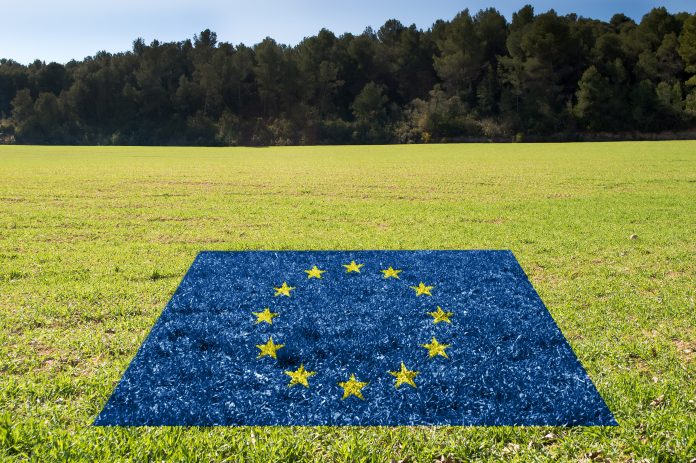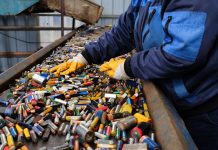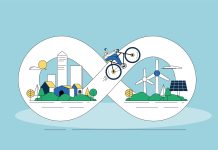Cillian Lohan from the European Economic and Social Committee provides his thoughts on the Green Deal, characterised by low carbon, low waste, low emissions plus a high quality of life and prosperity
It was only a few months ago that the famous blue of Europe was starting to turn distinctly green. The Von Der Leyen Commission launched the all-embracing European Green Deal which set a clear vision for an economy to be characterised by low carbon, low waste, low emissions and a high quality of life and prosperity. The message to all stakeholders was clear, Europe would be leading the way in the transition to the economy of the future.
Each sector had a role to play, and the detail would follow. From food production to processing, from manufacturing to consumers, whole value chains would be incentivised to be competitive through innovation, to become the new models of a well-performing economy that would overcome the challenges of the “biggest existential crisis facing humanity”.
A short few months ago, that phrase only meant one thing – climate change and the associated collapse of biodiversity, threatening our very ability to survive on this planet.
COVID-19 pandemic
But then came COVID-19, the coronavirus. And, in what seemed like an instant, everything stopped. A global pandemic changed the conversation.
As we sit amid the pandemic, we have to humbly admit that any sense of certainty has gone for the moment. Many questions will only be answered by time. As we lift lockdowns, will this virus slowly retreat into the background? Or will it surge forward again in a dreaded second wave forcing us to retreat back into our homes, those of us lucky enough to have a home or safe place to go?
An interesting way to spend this time is to consider what lessons we are learning; what new information do we have that we can use to apply to how we progress from here?
Let’s look at large scale behaviour change.
Climate action calls for intergenerational justice. The younger generation demands action from the older generation in order to protect their future.
Suddenly we face a crisis where it is primarily the older generation that are vulnerable. Large scale behaviour change was required to collectively protect them and the most vulnerable in society.
We have new information to achieving behaviour change and when wide-ranging, drastic behavioural adaptation is required, it is achievable in very short time scales. The world can become a very different place in a very short period of time when the immediacy of the negative consequences is realised.
This should be useful for dealing with climate challenges.
What about the role of people and society?
Our collective actions, from multilateral level, to the national level, down to community and individual level, have ensured a mostly coherent effective response to the virus crisis. There was no economic argument strong enough to compete with the health and wellbeing needs of people. All but essential services have been closed down. The economic cost, and it is enormous, was not even debated or considered.
We regularly discuss the need in our civilisation to balance the social, environmental, and economic elements of decision making. This is the primary building block of Sustainable Development. It is the foundation upon which the widely agreed UN Sustainable Development Goals are built.
However, decades of GDP growth and increased trade did little to address increasing social deprivation or rising inequality. The energy powering our growth economy directly threatens the very environment on which we depend for everything. We live on a planet heating beyond habitability while we catalogue a global mass extinction event.
This perception of growth at all costs, profit before people and so on, has been a driving mantra of populism.
But the political decision making concerning COVID-19 has been to put people first. The prioritisation of people’s health over everything else may have a profound effect on how the political decision-making machine is viewed. Individuals will work together for the greater good if given clear leadership.
Green Deal
The success of the Green Deal, as our political guiding light, will depend now on harnessing that collectivism. The Deal must be Social in its detail and put communities at the heart of its implementation. In this way, it can be a means of unifying society.
From sectors to individuals, from nations to small communities, we can be excited about the overarching framework of the Green Deal as a basis for how we rebuild. It was always going to be so hard to restructure systems, while those systems were operating at full speed.
It would have been like trying to fix a bicycle puncture while freewheeling down a steep hill. Now we have an opportunity to reset our systems post-COVID-19. We can design our recovery to have people at the very heart of all sectors and policies.
We can take the lessons from dealing with a global crisis and start now to eliminate the drivers of climate change, while also investing in the adaptations that are required.
I am optimistic and confident we can rebuild and design a better world than the one that has just ground to a halt. It will require all of us as individuals, in our different roles in society, to take the lessons we have learnt from this experience and apply them.
Those who are doing “essential” work have been clearly defined. Let’s ensure they are valued by our system. The framework for a green and inclusive recovery is there.











